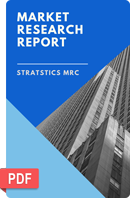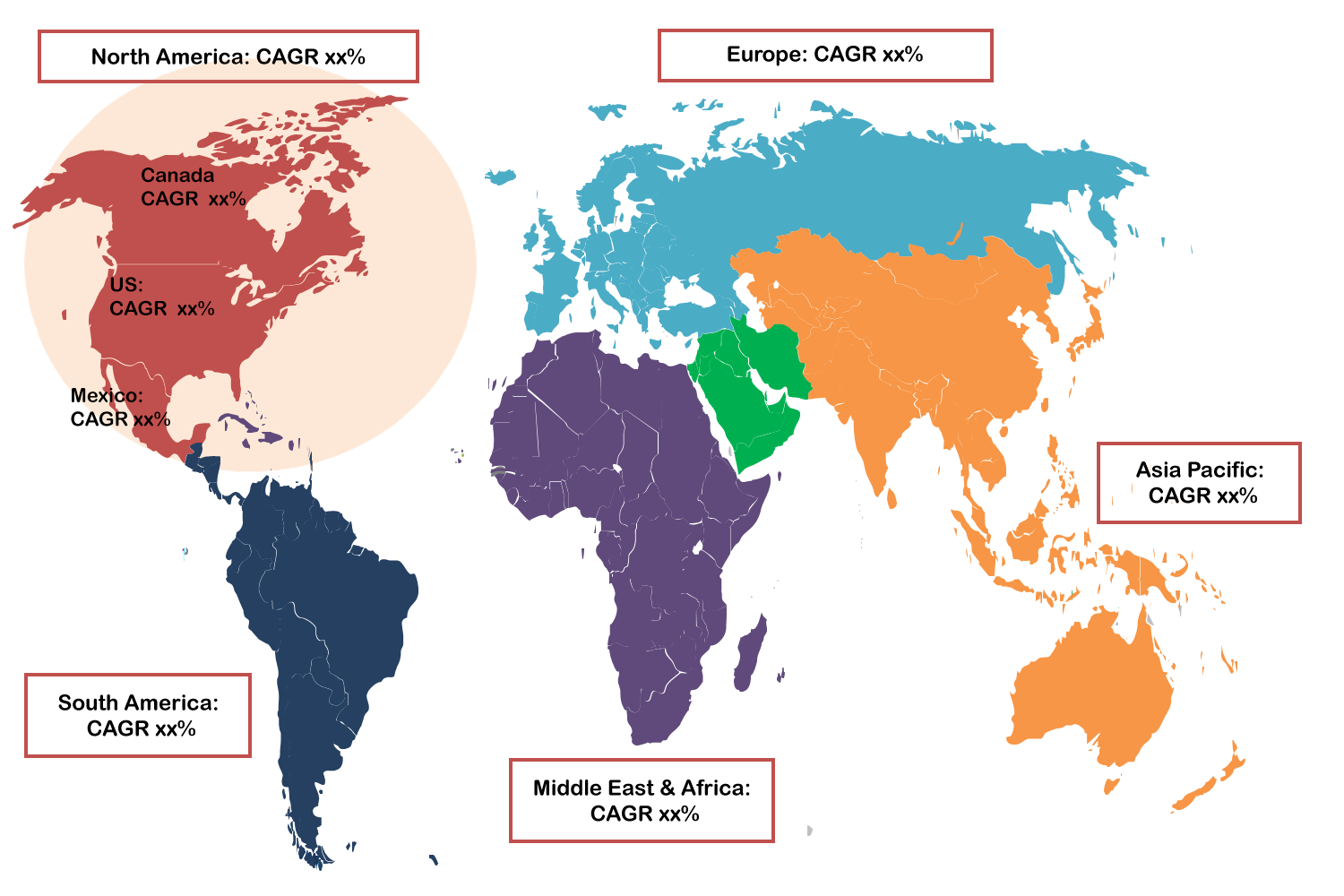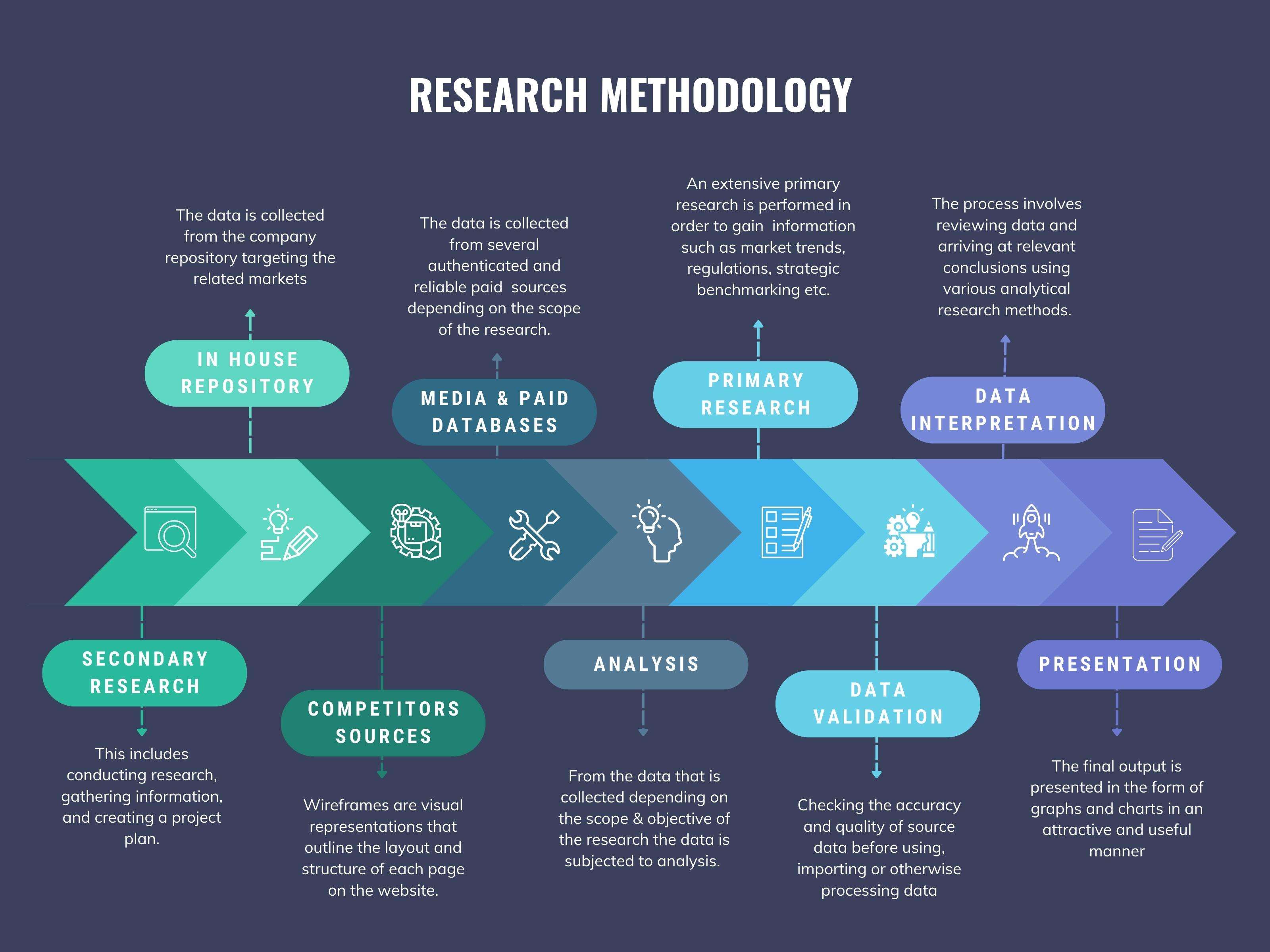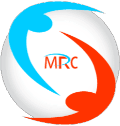
Stealth Technology Market
Stealth Technology Market Forecasts to 2032 - Global Analysis By Material (Radar Absorbent Materials (RAM), Metallic Coating, Non-metallic or Metallic Coating, Radar Reflecting Materials and Other Products), Platform, Technology, Application and By Geography

|
Years Covered |
2024-2032 |
|
Estimated Year Value (2025) |
US $51.66 BN |
|
Projected Year Value (2032) |
US $94.44 BN |
|
CAGR (2025 - 2032) |
9.0% |
|
Regions Covered |
North America, Europe, Asia Pacific, South America, and Middle East & Africa |
|
Countries Covered |
US, Canada, Mexico, Germany, UK, Italy, France, Spain, Japan, China, India, Australia, New Zealand, South Korea, Rest of Asia Pacific, South America, Argentina, Brazil, Chile, Middle East & Africa, Saudi Arabia, UAE, Qatar, and South Africa |
|
Largest Market |
Asia Pacific |
|
Highest Growing Market |
North America |
According to Stratistics MRC, the Global Stealth Technology Market is accounted for $51.66 billion in 2025 and is expected to reach $94.44 billion by 2032 growing at a CAGR of 9.0% during the forecast period. A collection of approaches used to reduce the detectability of aircraft, ships, submarines, and missiles by radar, infrared, sonar, and other detection techniques is referred to as stealth technology, or low observable technology. In order to enable military assets evade detection and tracking, it uses specific materials, forms, and coatings that lower emissions and reflection. Stealth technology, which is frequently employed in contemporary combat, increases a platform's survival by making it less visible to hostile sensors. To gain tactical benefits, it is frequently used in fighter jets like the F-22 Raptor and B-2 Spirit bomber.

Market Dynamics:
Driver:
Military modernization programs
Investing extensively in modern defence systems is a strategy used by nations to preserve strategic advantage. The development of unmanned systems, naval vessels, and aircraft with stealth capabilities is given top priority in these initiatives. By lowering detection from radar, infrared, and other tracking systems, stealth technology improves survivability. The need for low-observable platforms is growing as global threats change. As a result, defence contractors are speeding up innovation to satisfy the stealth demands of the contemporary battlefield.
Restraint:
High development and maintenance costs
Production costs are increased by these technologies' need for sophisticated materials, speciality coatings, and precise engineering. Smaller defence companies and emerging economies are deterred from entering the industry by the expensive initial expenditure. Because radar-absorbing materials and components are sensitive, maintaining stealth systems is extremely difficult and expensive. This raises the long-term ownership expenses for military operators and restricts the frequency of deployment. Because of this, many defence organisations give priority to less expensive options, which slows the growth of the sector as a whole.
Opportunity:
Growing demand for unmanned aerial vehicles (UAVs)
The necessity to improve UAVs' capacity to survive in adverse situations is growing as they are utilised more and more in military and surveillance missions. UAVs are more difficult to detect thanks to stealth technology, which reduces their radar, infrared, and auditory fingerprints. For combat missions, intelligence collection, and reconnaissance, this capacity is essential. To obtain tactical advantages, governments and defence organisations around the world are making significant investments in UAVs with stealth capabilities. Thus, the growth of the stealth technology market is directly driven by the rise of UAV applications.
Threat:
Potential for technological obsolescence
Current stealth capabilities are in danger of being surpassed by the rapid improvements in detection technology, such as quantum radar and AI-powered sensors. Defence organisations and private investors become unclear as a result, which makes them hesitant to contribute funds. Widespread adoption is limited by the expense and time required for frequent upgrades. Furthermore, stealth devices might not provide much of a strategic edge after they become obsolete. Market stability and growth are constrained by this never-ending competition between innovation and counter-innovation.
Covid-19 Impact
The COVID-19 pandemic significantly impacted the stealth technology market, leading to delays in defense projects, reduced budgets, and disrupted supply chains. However, the demand for advanced stealth systems remained strong due to ongoing geopolitical tensions and military modernization. Governments adapted by shifting focus to long-term defense strategies, leading to a gradual recovery in the market. Despite initial setbacks, the stealth technology sector is expected to grow as defense priorities and investments in advanced technologies regain momentum post-pandemic.
The metallic coating segment is expected to be the largest during the forecast period
The metallic coating segment is expected to account for the largest market share during the forecast period by enhancing radar-absorbing capabilities of military assets. These coatings reduce electromagnetic wave reflection, which makes ships, cars, and aeroplanes harder to spot. Superior durability and heat resistance are provided by advanced metallic materials, which are crucial for operations involving high temperatures or speeds. Nanostructured metallic coatings' effectiveness and versatility across a range of platforms are further enhanced by ongoing research and development. Advanced metallic coatings are becoming more and more necessary as defence agencies want increased stealth and survivability.
The surveillance & reconnaissance segment is expected to have the highest CAGR during the forecast period
Over the forecast period, the surveillance & reconnaissance segment is predicted to witness the highest growth rate, due to high demand for low-observable platforms that can gather intelligence undetected. Advanced stealth capabilities enable aircraft, drones, and naval vessels to operate in hostile territories without being easily tracked or targeted. This increases mission success rates and ensures strategic advantages for defense forces. Continuous innovation in radar-evading materials and infrared suppression enhances the effectiveness of reconnaissance operations. As global security concerns grow, nations invest heavily in stealth-enabled surveillance systems, fueling market expansion.
Region with largest share:
During the forecast period, the Asia Pacific region is expected to hold the largest market share due to rising defense budgets in countries like China, India, and Japan. Regional security concerns, such as territorial disputes and the need for advanced surveillance systems, have fueled investments in stealth aircraft and unmanned aerial vehicles (UAVs). The region's defense forces are increasingly adopting cutting-edge technologies to improve operational efficiency. Collaborative efforts among governments and defense manufacturers, along with growing military modernization programs, are contributing to the market's robust growth in Asia Pacific.
Region with highest CAGR:
Over the forecast period, the North America region is anticipated to exhibit the highest CAGR, owing to increasing defense expenditures and technological advancements. The United States, being a major player, focuses on enhancing military capabilities through stealth aircraft, naval vessels, and radar-evading systems. The demand for these technologies is driven by the need for advanced defense solutions to counter emerging threats. Strategic investments and the presence of key defense contractors also boost the region's market, with continuous innovation in stealth capabilities to maintain a competitive edge.

Key players in the market
Some of the key players profiled in the Stealth Technology Market include Lockheed Martin, Northrop Grumman, Boeing, BAE Systems, Raytheon Technologies, General Dynamics, Dassault Aviation, Airbus Defence and Space, Thales Group, Textron, Leonardo S.p.A., Mitsubishi Heavy Industries, Elbit Systems, Hindustan Aeronautics Limited (HAL), UAV Navigation, Raytheon Missiles & Defense and Saab Group.
Key Developments:
In January 2024, Northrop Grumman and Mitsubishi Electric signed a teaming agreement to collaborate on integrated air and missile defense capabilities for Japan's ground-based systems. This partnership aims to develop a networking solution integrating Japan’s air and missile defense capabilities to share target information across various defense systems.
In January 2024, Lockheed Martin's Skunk Works unveiled the X-59, an experimental aircraft designed to reduce the loudness of sonic booms to a gentle ""thump."" This project aims to revolutionize supersonic flight over land by addressing one of its most persistent challenges.
In March 2023, Lockheed Martin and Tata Group entered into an agreement to produce fighter wing shipsets at their joint venture, Tata Lockheed Martin Aerostructures Limited (TLMAL) in Hyderabad, India. The production of 29 fighter wing shipsets was set to commence, supporting Lockheed Martin's F-21 offering for the Indian Air Force.
Materials Covered:
• Radar Absorbent Materials (RAM)
• Metallic Coating
• Non-metallic or Metallic Coating
• Radar Reflecting Materials
• Low-Observable Composites
• Metamaterials & Nanocomposites
• Other Materials
Platforms Covered:
• Aerial
• Naval
• Terrestrial
• Missile Systems
• Other Platforms
Technologies Covered:
• Radar Cross Section (RCS) Reduction
• Radar Emission
• Radar Absorbent Materials (RAM)
• Shape Optimization
• IR (Infrared) Signature Emission Reduction
• Acoustic Emission Reduction
• RF (Radio Frequency) Emission Control
• Plasma Cloud
• Active Camouflage
• Electromagnetic Shielding
• Low Observable Technology
• Other Technologies
Applications Covered:
• Military
• Homeland Security
• Aerospace
• Commercial
• Surveillance & Reconnaissance
• Combat Operations
• Electronic Warfare
• Other Applications
Regions Covered:
• North America
o US
o Canada
o Mexico
• Europe
o Germany
o UK
o Italy
o France
o Spain
o Rest of Europe
• Asia Pacific
o Japan
o China
o India
o Australia
o New Zealand
o South Korea
o Rest of Asia Pacific
• South America
o Argentina
o Brazil
o Chile
o Rest of South America
• Middle East & Africa
o Saudi Arabia
o UAE
o Qatar
o South Africa
o Rest of Middle East & Africa
What our report offers:
- Market share assessments for the regional and country-level segments
- Strategic recommendations for the new entrants
- Covers Market data for the years 2024, 2025, 2026, 2028, and 2032
- Market Trends (Drivers, Constraints, Opportunities, Threats, Challenges, Investment Opportunities, and recommendations)
- Strategic recommendations in key business segments based on the market estimations
- Competitive landscaping mapping the key common trends
- Company profiling with detailed strategies, financials, and recent developments
- Supply chain trends mapping the latest technological advancements
Free Customization Offerings:
All the customers of this report will be entitled to receive one of the following free customization options:
• Company Profiling
o Comprehensive profiling of additional market players (up to 3)
o SWOT Analysis of key players (up to 3)
• Regional Segmentation
o Market estimations, Forecasts and CAGR of any prominent country as per the client's interest (Note: Depends on feasibility check)
• Competitive Benchmarking
o Benchmarking of key players based on product portfolio, geographical presence, and strategic alliances
Table of Contents
1 Executive Summary
2 Preface
2.1 Abstract
2.2 Stake Holders
2.3 Research Scope
2.4 Research Methodology
2.4.1 Data Mining
2.4.2 Data Analysis
2.4.3 Data Validation
2.4.4 Research Approach
2.5 Research Sources
2.5.1 Primary Research Sources
2.5.2 Secondary Research Sources
2.5.3 Assumptions
3 Market Trend Analysis
3.1 Introduction
3.2 Drivers
3.3 Restraints
3.4 Opportunities
3.5 Threats
3.6 Technology Analysis
3.7 Application Analysis
3.8 Emerging Markets
3.9 Impact of Covid-19
4 Porters Five Force Analysis
4.1 Bargaining power of suppliers
4.2 Bargaining power of buyers
4.3 Threat of substitutes
4.4 Threat of new entrants
4.5 Competitive rivalry
5 Global Stealth Technology Market, By Material
5.1 Introduction
5.2 Radar Absorbent Materials (RAM)
5.3 Metallic Coating
5.4 Non-metallic or Metallic Coating
5.5 Radar Reflecting Materials
5.6 Low-Observable Composites
5.7 Metamaterials & Nanocomposites
5.8 Other Materials
6 Global Stealth Technology Market, By Platform
6.1 Introduction
6.2 Aerial
6.3 Naval
6.4 Terrestrial
6.5 Missile Systems
6.6 Other Platforms
7 Global Stealth Technology Market, By Technology
7.1 Introduction
7.2 Radar Cross Section (RCS) Reduction
7.3 Radar Emission
7.4 Radar Absorbent Materials (RAM)
7.5 Shape Optimization
7.6 IR (Infrared) Signature Emission Reduction
7.7 Acoustic Emission Reduction
7.8 RF (Radio Frequency) Emission Control
7.9 Plasma Cloud
7.10 Active Camouflage
7.11 Electromagnetic Shielding
7.12 Low Observable Technology
7.13 Other Technologies
8 Global Stealth Technology Market, By Application
8.1 Introduction
8.2 Military
8.3 Homeland Security
8.4 Aerospace
8.5 Commercial
8.6 Surveillance & Reconnaissance
8.7 Combat Operations
8.8 Electronic Warfare
8.9 Other Applications
9 Global Stealth Technology Market, By Geography
9.1 Introduction
9.2 North America
9.2.1 US
9.2.2 Canada
9.2.3 Mexico
9.3 Europe
9.3.1 Germany
9.3.2 UK
9.3.3 Italy
9.3.4 France
9.3.5 Spain
9.3.6 Rest of Europe
9.4 Asia Pacific
9.4.1 Japan
9.4.2 China
9.4.3 India
9.4.4 Australia
9.4.5 New Zealand
9.4.6 South Korea
9.4.7 Rest of Asia Pacific
9.5 South America
9.5.1 Argentina
9.5.2 Brazil
9.5.3 Chile
9.5.4 Rest of South America
9.6 Middle East & Africa
9.6.1 Saudi Arabia
9.6.2 UAE
9.6.3 Qatar
9.6.4 South Africa
9.6.5 Rest of Middle East & Africa
10 Key Developments
10.1 Agreements, Partnerships, Collaborations and Joint Ventures
10.2 Acquisitions & Mergers
10.3 New Product Launch
10.4 Expansions
10.5 Other Key Strategies
11 Company Profiling
11.1 Lockheed Martin
11.2 Northrop Grumman
11.3 Boeing
11.4 BAE Systems
11.5 Raytheon Technologies
11.6 General Dynamics
11.7 Dassault Aviation
11.8 Airbus Defence and Space
11.9 Thales Group
11.10 Textron
11.11 Leonardo S.p.A.
11.12 Mitsubishi Heavy Industries
11.11 Elbit Systems
11.14 Hindustan Aeronautics Limited (HAL)
11.15 UAV Navigation
11.16 Raytheon Missiles & Defense
11.17 Saab Group
List of Tables
1 Global Stealth Technology Market Outlook, By Region (2024-2032) ($MN)
2 Global Stealth Technology Market Outlook, By Material (2024-2032) ($MN)
3 Global Stealth Technology Market Outlook, By Radar Absorbent Materials (RAM) (2024-2032) ($MN)
4 Global Stealth Technology Market Outlook, By Metallic Coating (2024-2032) ($MN)
5 Global Stealth Technology Market Outlook, By Non-metallic (2024-2032) ($MN)
6 Global Stealth Technology Market Outlook, By Radar Reflecting Materials (2024-2032) ($MN)
7 Global Stealth Technology Market Outlook, By Low-Observable Composites (2024-2032) ($MN)
8 Global Stealth Technology Market Outlook, By Metamaterials & Nanocomposites (2024-2032) ($MN)
9 Global Stealth Technology Market Outlook, By Other Materials (2024-2032) ($MN)
10 Global Stealth Technology Market Outlook, By Platform (2024-2032) ($MN)
11 Global Stealth Technology Market Outlook, By Aerial (2024-2032) ($MN)
12 Global Stealth Technology Market Outlook, By Naval (2024-2032) ($MN)
13 Global Stealth Technology Market Outlook, By Terrestrial (2024-2032) ($MN)
14 Global Stealth Technology Market Outlook, By Missile Systems (2024-2032) ($MN)
15 Global Stealth Technology Market Outlook, By Other Platforms (2024-2032) ($MN)
16 Global Stealth Technology Market Outlook, By Technology (2024-2032) ($MN)
17 Global Stealth Technology Market Outlook, By Radar Cross Section (RCS) Reduction (2024-2032) ($MN)
18 Global Stealth Technology Market Outlook, By Radar Emission (2024-2032) ($MN)
19 Global Stealth Technology Market Outlook, By Radar Absorbent Materials (RAM) (2024-2032) ($MN)
20 Global Stealth Technology Market Outlook, By Shape Optimization (2024-2032) ($MN)
21 Global Stealth Technology Market Outlook, By IR (Infrared) Signature Emission Reduction (2024-2032) ($MN)
22 Global Stealth Technology Market Outlook, By Acoustic Emission Reduction (2024-2032) ($MN)
23 Global Stealth Technology Market Outlook, By RF (Radio Frequency) Emission Control (2024-2032) ($MN)
24 Global Stealth Technology Market Outlook, By Plasma Cloud (2024-2032) ($MN)
25 Global Stealth Technology Market Outlook, By Active Camouflage (2024-2032) ($MN)
26 Global Stealth Technology Market Outlook, By Electromagnetic Shielding (2024-2032) ($MN)
27 Global Stealth Technology Market Outlook, By Low Observable Technology (2024-2032) ($MN)
28 Global Stealth Technology Market Outlook, By Other Technologies (2024-2032) ($MN)
29 Global Stealth Technology Market Outlook, By Application (2024-2032) ($MN)
30 Global Stealth Technology Market Outlook, By Military (2024-2032) ($MN)
31 Global Stealth Technology Market Outlook, By Homeland Security (2024-2032) ($MN)
32 Global Stealth Technology Market Outlook, By Aerospace (2024-2032) ($MN)
33 Global Stealth Technology Market Outlook, By Commercial (2024-2032) ($MN)
34 Global Stealth Technology Market Outlook, By Surveillance & Reconnaissance (2024-2032) ($MN)
35 Global Stealth Technology Market Outlook, By Combat Operations (2024-2032) ($MN)
36 Global Stealth Technology Market Outlook, By Electronic Warfare (2024-2032) ($MN)
37 Global Stealth Technology Market Outlook, By Other Applications (2024-2032) ($MN)
Note: Tables for North America, Europe, APAC, South America, and Middle East & Africa Regions are also represented in the same manner as above.
List of Figures
RESEARCH METHODOLOGY

We at ‘Stratistics’ opt for an extensive research approach which involves data mining, data validation, and data analysis. The various research sources include in-house repository, secondary research, competitor’s sources, social media research, client internal data, and primary research.
Our team of analysts prefers the most reliable and authenticated data sources in order to perform the comprehensive literature search. With access to most of the authenticated data bases our team highly considers the best mix of information through various sources to obtain extensive and accurate analysis.
Each report takes an average time of a month and a team of 4 industry analysts. The time may vary depending on the scope and data availability of the desired market report. The various parameters used in the market assessment are standardized in order to enhance the data accuracy.
Data Mining
The data is collected from several authenticated, reliable, paid and unpaid sources and is filtered depending on the scope & objective of the research. Our reports repository acts as an added advantage in this procedure. Data gathering from the raw material suppliers, distributors and the manufacturers is performed on a regular basis, this helps in the comprehensive understanding of the products value chain. Apart from the above mentioned sources the data is also collected from the industry consultants to ensure the objective of the study is in the right direction.
Market trends such as technological advancements, regulatory affairs, market dynamics (Drivers, Restraints, Opportunities and Challenges) are obtained from scientific journals, market related national & international associations and organizations.
Data Analysis
From the data that is collected depending on the scope & objective of the research the data is subjected for the analysis. The critical steps that we follow for the data analysis include:
- Product Lifecycle Analysis
- Competitor analysis
- Risk analysis
- Porters Analysis
- PESTEL Analysis
- SWOT Analysis
The data engineering is performed by the core industry experts considering both the Marketing Mix Modeling and the Demand Forecasting. The marketing mix modeling makes use of multiple-regression techniques to predict the optimal mix of marketing variables. Regression factor is based on a number of variables and how they relate to an outcome such as sales or profits.
Data Validation
The data validation is performed by the exhaustive primary research from the expert interviews. This includes telephonic interviews, focus groups, face to face interviews, and questionnaires to validate our research from all aspects. The industry experts we approach come from the leading firms, involved in the supply chain ranging from the suppliers, distributors to the manufacturers and consumers so as to ensure an unbiased analysis.
We are in touch with more than 15,000 industry experts with the right mix of consultants, CEO's, presidents, vice presidents, managers, experts from both supply side and demand side, executives and so on.
The data validation involves the primary research from the industry experts belonging to:
- Leading Companies
- Suppliers & Distributors
- Manufacturers
- Consumers
- Industry/Strategic Consultants
Apart from the data validation the primary research also helps in performing the fill gap research, i.e. providing solutions for the unmet needs of the research which helps in enhancing the reports quality.
For more details about research methodology, kindly write to us at info@strategymrc.com
Frequently Asked Questions
In case of any queries regarding this report, you can contact the customer service by filing the “Inquiry Before Buy” form available on the right hand side. You may also contact us through email: info@strategymrc.com or phone: +1-301-202-5929
Yes, the samples are available for all the published reports. You can request them by filling the “Request Sample” option available in this page.
Yes, you can request a sample with your specific requirements. All the customized samples will be provided as per the requirement with the real data masked.
All our reports are available in Digital PDF format. In case if you require them in any other formats, such as PPT, Excel etc you can submit a request through “Inquiry Before Buy” form available on the right hand side. You may also contact us through email: info@strategymrc.com or phone: +1-301-202-5929
We offer a free 15% customization with every purchase. This requirement can be fulfilled for both pre and post sale. You may send your customization requirements through email at info@strategymrc.com or call us on +1-301-202-5929.
We have 3 different licensing options available in electronic format.
- Single User Licence: Allows one person, typically the buyer, to have access to the ordered product. The ordered product cannot be distributed to anyone else.
- 2-5 User Licence: Allows the ordered product to be shared among a maximum of 5 people within your organisation.
- Corporate License: Allows the product to be shared among all employees of your organisation regardless of their geographical location.
All our reports are typically be emailed to you as an attachment.
To order any available report you need to register on our website. The payment can be made either through CCAvenue or PayPal payments gateways which accept all international cards.
We extend our support to 6 months post sale. A post sale customization is also provided to cover your unmet needs in the report.
Request Customization
We offer complimentary customization of up to 15% with every purchase. To share your customization requirements, feel free to email us at info@strategymrc.com or call us on +1-301-202-5929. .
Please Note: Customization within the 15% threshold is entirely free of charge. If your request exceeds this limit, we will conduct a feasibility assessment. Following that, a detailed quote and timeline will be provided.
WHY CHOOSE US ?

Assured Quality
Best in class reports with high standard of research integrity

24X7 Research Support
Continuous support to ensure the best customer experience.

Free Customization
Adding more values to your product of interest.

Safe & Secure Access
Providing a secured environment for all online transactions.

Trusted by 600+ Brands
Serving the most reputed brands across the world.
